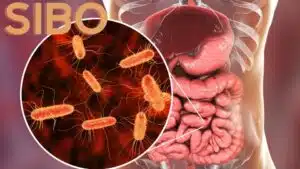Infertility is defined as the inability of a couple to conceive after one year of unprotected sex. For clarification, in this article, I will refer to a female/woman as someone who was born with female reproductive organs at birth and I will refer to a male/man as someone who was born with male reproductive organs at birth. When a couple struggles with infertility, most women are quick to assume full responsibility for fertility challenges; however, the male factor now contributes to up to 50% of all infertility cases. Therefore, both partners are just as likely to be responsible for fertility challenges!!!!Although male and female infertility have many different causes, both can be improved with a healthy diet, targeted supplementation and other lifestyle strategies such as increasing physical activity, obtaining adequate sleep and ensuring healthy stress management.
Male fertility depends on the quality of the sperm which is analyzed via sperm analysis. This looks at the following factors – morphology (the shape of the sperm), motility (how well the sperm swim), sperm count and concentration (the number of sperm). Luckily, nutrition can improve all of these sperm parameters. Just like improving the health of the egg takes time, so does improving the health of the sperm. Spermatogenesis or the production and maturation of sperm takes approximately 74 days; therefore, any changes you make will take a minimum of three months to positively impact your sperm quality. So, it is best to start early!
1. Increase Intake of Fish and Shellfish
Fish and shellfish are high in micronutrients such as zinc and selenium which are known to improve sperm parameters. Specifically, oily fish such as salmon, trout, mackerel, sardines, and herring are especially beneficial as these fish are high in omega 3 fats which are an essential structural component of the sperm’s cellular membrane and therefore essential for successful fertilization.
Studies have shown when males consume high amounts of omega 3 either through diet or supplementation it has positive effects on sperm count, concentration, and motility.
Try to include oily fish in your diet at least two to three times per week to reap these benefits. If you are not keen on fish, an omega-3 supplement would be the next best thing. Instead of choosing any omega 3 supplement on the market, I would encourage you to have your omega 3 index tested through a simple blood test which would allow you to tailor your supplementation to you yielding best results.
2. Decrease intake of refined carbohydrates
What are refined carbohydrates? Refined carbohydrates are foods that have undergone processing to be stripped of their fibre and other important nutrients such as white bread, white rice, white pasta, white crackers, etc.
Refined carbohydrates are associated with poor sperm motility, and lower sperm count and concentration.
Instead, choose whole grains such as 100% whole grain bread, brown or wild rice, and whole wheat pasta which contain more fibre to help stabilize your blood sugar and help to satiate you. You can also experiment with other whole grains such as quinoa, buckwheat, amaranth, spelt, barley, and steel cut oats.
3. Increase Intake of Fruits and Vegetables
Aim to consume at least one serving of fruits and veggies from ALL of the five colour categories which include white, green, blue/purple, red, yellow/orange. Obtaining fruits and veggies from all five colour categories ensures the consumption of a variety of antioxidants and nutrients such as folate, and vitamin C that support sperm quality.
Research shows that men with the highest fruit and vegetable consumption tend to have better sperm parameters.
Go ahead and enjoy veggies with a dip or drizzle some olive oil on roasted veggies as the fat helps the absorption of fat-soluble nutrients.
- White – mushrooms, garlic, onion, cauliflower, parsnip, leeks, daikon radish
- Green – lettuce, spinach, kale, green peppers, broccoli, Brussels sprouts, kiwi, avocadoes, asparagus, collard greens, green cabbage
- Blue/purple – blueberries, blackberries, eggplant, plums, figs, prunes, purple cabbage, concord grapes
- Red – strawberries, cranberries, raspberries, tomatoes, cherries, apples, beets, watermelon, red peppers, red onion
- Yellow/orange – sweet potatoes, yellow peppers, oranges, bananas, pineapple, tangerines, mango, pumpkin, apricots, winter squash peaches, cantaloupe
4. Ensure adequate vitamin D
Living in Canada most of us are vitamin D deficient as our skin is unable to synthesize vitamin D through October to March due to a lack of vitamin UVB rays. In the summer months, sunscreen prevents the synthesis of vitamin D. In addition, if you are darker skinned and/or living in a larger body then you would require longer sun exposure than a light-skinned or thinner counterpart.Lastly, vitamin D is not abundantly found in our food supply. Therefore, it is best to test your blood levels of vitamin D and supplement accordingly. In Ontario, this test costs approximately $35-40.
Men deficient in vitamin D have higher numbers of abnormally looking sperm and sperm with poor motility. Vitamin D supplementation has been shown to improve sperm motility and increase pregnancy rates.
5. Increase Intake of Organ Meats
Organ meats specifically beef liver is coined as “nature’s multivitamin” and for good reason too. It is high in many nutrients which play a key role in the production and maturation of sperm such as vitamin A, folate, Coenzyme Q10, zinc and selenium.
All of these nutrients have shown positive changes in sperm parameters.
Conclusion
Infertility is common affecting many couples worldwide and the male factor now contributes to up to 50% of all infertility cases. If you are experiencing infertility issues and hoping to improve your sperm parameters, try increasing your intake of fish and shellfish, organ meats, consuming an array of different coloured fruits and veggies, swapping out refined grains for whole grains and ensuring your vitamin D levels are optimal. Keep in mind that it takes approximately three months to affect the production and maturation of sperm. Although there is no guaranteed fix, optimizing your nutritional intake before you decide to start a family, for both females and males can improve your chances of conception.
Sources
Ricci E., et al. “Dietary habits and semen parameters: a systematic narrative review.: Andrology 6(1) (2018): 104-116.
Ferramosca, A., and V. Zara. “Diet and male fertility: the impact of nutrients and antioxidants on sperm energetic metabolism.” International Journal of Molecular Sciences 23(5) (2022): 2542.
Skoracka K, Eder P, Łykowska-Szuber L, Dobrowolska A, Krela-Kaźmierczak I. “Diet and Nutritional Factors in Male (In)fertility-Underestimated Factors.” Journal of Clinical Medicine. 9 (5) (2020): 1400.

Elena Usdenski
Related Posts

Navigating the Testosterone Terrain: Avoiding Common Pitfalls for Optimal Health



Symptoms of SIBO vs IBS, hydrogen vs methane SIBO symptoms and Hydrogen sulfide SIBO

13 Signs You May Be Low In B Vitamins – B6, B9 Or B12


